The first of a new (semi-)regular series by Joel Sked on Scottish football’s legends, cult heroes and villains.
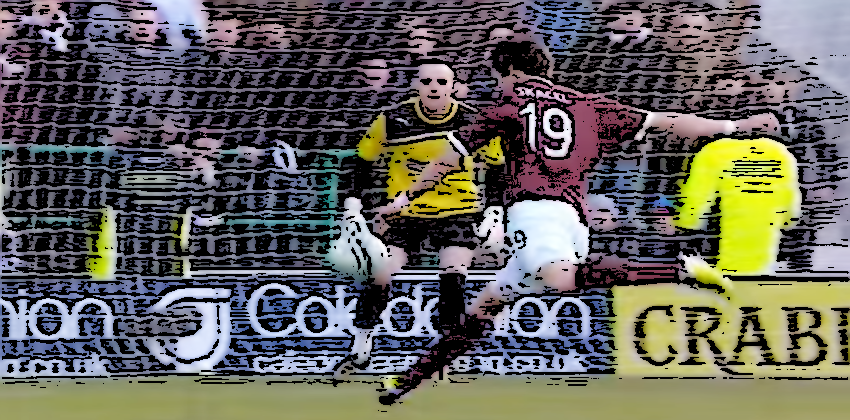 Hibs, with the noose squeezed tightly around their neck, awaited the executioner to kick the stool from under their feet . . .
Hibs, with the noose squeezed tightly around their neck, awaited the executioner to kick the stool from under their feet . . .
A cross field Danny Grainger pass finds Suso. The Spaniard exchanges passes with Rudi Skácel before giving it back to the Czech forward. Skácel, like a contestant running the Gauntlet in Gladiators, uses the contact of two opponents to act as a springboard and create space inside the D. James McPake hares desperately towards him looking to sack him. He takes aim, draws back his favoured weapon of choice and, as McPake goes to ground, releases; the ball evades the despairing McPake. The stool is kicked, firmly, finally, from under their feet. The executioner has acted.
“And Rudi Skácel scores again. Hibs humiliated. This is Hearts’ cup.”
Some players just get it. That it which borders on myth. The it that makes fans’ eyes light up with the mere mention of his name.
That it has given Rudolf ‘Rudi’ Skácel mythical status at Tynecastle. A deity. A man from Trutnov, a town of around 31,000 in the north of the Czech Republic on the border with Poland, is a legend for eternity in Edinburgh’s west end. From his first derby outing to his last, Skácel got it. He got Heart of Midlothian Football Club. Around Gorgie he will never be forgotten. Generations will remember the goals, they will remember the antics, they will reminisce about that left-foot. Those not with us yet will grow up hearing about Rudi Skácel, wishing they were around to just see one moment. One drawback of that left-foot.
But it won’t just be in Gorgie and Edinburgh he is remembered but in Scottish football as a whole. This is a player who brought a concoction of entertainment and controversy to the league. When legends of the Scottish game – certainly since the turn of the century – are talked about Skácel’s name should feature.
Fans of Dundee United will look upon him indifferently, while he waits to make his mark in Kirkcaldy in the swansong of his career. But what makes Rudi stand out above many others is that he managed to combine both cult hero and genuine legend status in EH11. Legends win trophies, score goals, become part of the club’s furniture due to their longevity. Cult heroes are more fleeting, more erratic providing amusing and climatic moments – a momentous goal or flashing a loser sign to your rivals.
Quite the feat for a player who admitted that he had never heard of the club upon signing for them in 2005.
“I had some offers in the summer to return home and Celtic were interested in me too. Then Hearts contacted me, but I thought it was too small a club.
“However, George Burley and his assistant, Simon Hunt, called me and my agent five times a day and I saw they really wanted me for their plans. I began to pick up some information about the club and saw they wanted to attack the position Celtic and Rangers have traditionally held in the Scottish game.”
Skácel’s career to that point had been on a relatively upward trajectory. There was success at the club from the region of the same name, Hradec Králové. After helping them gain promotion to the top tier of Czech football he was snapped up by traditional big boys Slavia Prague where he stayed for three seasons. He even got his first experience of winning a capital cup final as Slavia beat rivals Sparta while he was a bit part player in his first season.
Such were his performances in the Czech capital, he attracted overtures from French giants Marseille. Skácel had a reasonable first season, clocking up 24 appearances before he fell out of favour and found himself at another club renowned for their passionate and vociferous support – Greek heavyweights Panathinaikos. He displayed his talent in flashes as he appeared and scored in the Champions League, while he sampled the intense derby of the eternal adversaries: Panathinaikos and Olympiakos. However, his loan ended with him not having done enough to convince Oi Prasinoi to make it permanent and he was back at Marseille.
It was the summer of 2005. The 265th Pope had been chosen; employment had reached a record high in the UK; Doctor Who returned to screens as a television series for the first time since 1989; 2Pac featuring Elton John knocked Crazy Frog off the top of the charts after four weeks; Liverpool defeated AC Milan in one of the all-time great Champions League finals and Ryan Esson was part of the Scotland squad.
In Gorgie it seemed that the sun shone every day as Hearts were staying at Tynecastle and under new ownership; Russian-born Lithuanian businessman Vladimir Romanov was looking to turn the Jam Tarts into a force. There was talk of a war chest, while names linked to the vacant managerial position included Sir Bobby Robson, Gerard Houllier, Lothar Matthäus and . . . Gary Megson. However, it was former Ipswich Town boss George Burley who got the nod.
The squad he took over needed much work. Numerous players from the fifth place finish under John Robertson had departed. The much-maligned duo of Stephen Simmons and Jamie McAllister remained. Signings did eventually emerge prior to the first game of the season, one of those was Rudi Skácel. While he may not have known much about the club, fans were equally oblivious to the qualities he would add to the team. Yet, it wouldn’t take long for them to find out and develop an admiration.
Thousands travelled to Rugby Park with hope and expectation as a new era began for the club. But it didn’t begin well as Steven Naismith put the home side ahead. However, seconds later and with 12 minutes on the clock an Edgaras Jankauskas cross was diverted towards goal by Skácel only for Alan Combe to show quick reflexes, but he didn’t possess the speed to respond to the rebound as Rudi poked it high into the net. It was not the most beautiful of goals but it was the start of something most beautiful.
A week later it happened – the match which started the fire.
Thirteen minutes into the Edinburgh derby at Tynecastle, Paul Hartley picked up the ball and with runners ahead of him he slid in Roman Bednar, pinball ensued, the ball spinning up off Zibi Malkowski. The first to react? Skácel. Off he went in front of the Roseburn Stand, packed with the Hibernian hordes. He contemplated taking off his top but opted for kissing the badge in front of the Hibees. All well and good. Many players do it, nothing special. But then he stopped, looked them in the eye and gestured for them to effectively ‘fuck off’. The church of Rudi was open for business.
Widespread outbreaks of ‘RUDI, RUDI, RUDI’. Devotion.
There is nothing Hearts fans like more than beating Hibs, looking down on them. Putting them in their place. A player who hadn’t even completed two competitive games had already got it. He had done what every Hearts fans dreamed of, scoring in a derby and letting them know it. One hundred and two minutes into his Hearts career and cult hero status had been unlocked. Achieved with the highest possible score.
The whole of Scottish football was talking about Hearts. Soon Hearts were being talked about in England, Europe and beyond. Dundee United, Aberdeen, Motherwell, Livingston and Motherwell all fell at the feet of the Gorgie juggernaut. In every single one Skácel scored.
“The beginning of this season was the best time in my career,” Rudi claimed.
Skácel was an integral part of the exciting, high-tempo, direct side under Burley. Fast starts were the norm as the ball was chucked down the throat, into the stomach, through the legs of the opposition. It was anarchic football. 4-4-2, Skácel on the left. That’s what it was on paper but the chaotic, head-spinning football suited Rudi. He moved freely.
The chemistry he had with Hartley driving from deep and the tall, powerful, skilful duo of Jankauskas and Bednar was footballing nirvana for Hearts fans. Deemed a left-winger, that was merely a suggestion for Rudi. Not a request, a demand or a responsibility. He constantly moved infield and beyond defences to get on the end of passes from Hartley or flick-ons from the front two – he had a striker’s scent, a foresight which allowed him to know where the ball would drop. Those were heady days, skies were a radiant blue and birds chirped Hector Nicol’s Hearts, Hearts, Glorious Hearts.
Yet, as we all know, all turned out not to be well at Tynecastle.
Every Hearts fan remembers where they were at that watershed moment. Hearts top of the league and Burley gone on the morning of a home game against Dunfermline. Rudi paid tribute to his ‘gaffer’ the only way he knew how. Scoring. Both him and Hartley displayed messages of support to Burley after the game.
The stories surrounding the ex-manager’s departure remain apocryphal but it is said that part of the reason of his departure was Romanov’s insistence that the Lithuanians in the team should be garnering more minutes, one such suggestion was Saulius Mikoliunas in ahead of Skácel. The managerial decision would have a severe impact on Skácel’s next career move. But until then there were still games to be won and goals to be scored.
By the end of January 16 goals had been plundered and they were getting better and better. The vicious left-foot became more prominent. Goals were lashed in against Livingston and Falkirk before, perhaps, his best strike in a Hearts top. And it was only going to come against one team.
Another Edinburgh derby at Tynecastle and another rampant performance. A Hartley free-kick broke free in the box, bouncing down around the penalty area, three Hibs players raced to close down. Skácel kept his eyes on the ball. He knew where the goal was. His body faced fans in the Main Stand but he got his knee over and wrapped his foot around the ball, sending it skidding into the turf, past Simon Brown and inside the post. This time he raced towards the Hearts fans, badge in his mouth, 14,000 fans worshipping at his feet.
From there the goals dried up as Hearts dropped out the title race. He would finish the season without scoring at the Gorgie end. A curse that did not look it would be put to bed as it became known his first season at Tynecastle would be his last, despite Hearts exercising their right to extend his contract for two years. His remaining leagues games would be marked by an alleged spitting incident with Neil Lennon – the second time he was accused of such an act that season.
Yet, that did little to affect his standing in Gorgie. Going into the Scottish Cup final he sat on 16 goals with cult status assured. It was a status that had to be enhanced and he did his best by putting Hearts in front against Gretna with another well taken goal with that left-foot and then a penalty netted in the triumphant shoot-out.
He made sure to make the most of the occasion, providing Hearts fans with wonderful iconography. From whipping his top off for the goal, to the ‘I will never forget’ emblazoned on his t-shirt, wearing a See You Jimmy hat to the bromance with Hartley as they wore each other’s strip back-to-front.
Fans bade farewell to a legend, believing it was goodbye.
Skácel would hook up with Burley at Southampton in the Championship. Even there he couldn’t let Hearts go, continuing to wear the club’s official band at the height of the Livestrong ‘fad’. The chemistry wasn’t the same on the south coast. He was more restricted in his positioning and ended up playing left-back at times. It was the continuation of a peripatetic career.
After 18 underwhelming months at Southampton he left on loan to Hertha Berlin for half a season of Bundesliga football as he tried to make the Czech Republic squad for the 2008 European Championships having missed out on the 2006 World Cup in Germany. He succeeded in his mission but failed to play a single second in Austria & Switzerland before returning to St Mary’s that summer to take part in Saints’ relegation to League One.
His time in England was up and what followed was another wasted season, first back at Slavia Prague then with Larissa in the Thessaly region of Greece. It was during that latter spell he earned his seventh and final cap for his country with a goal tally of one.
Hearts, in the intervening years, ventured from one crisis to another controversy to far-fetched circus. However, by 2010 Romanov had already determined that the team would do better with an actual manager. Another unforeseen aspect of the Lithuanian businessman’s stewardship was his softening towards those who he felt had done damage to the club’s reputation. The departure of Skácel did not end on amicable terms but remarkably, prompting mass hysteria among Hearts fans, Rudi was primed for a return – signing a deal in September.
“It was better we both had a few years to calm down and to realise that, last time, neither of us made everything perfect. But we thought we could try to build a relationship again.”
There was no need for any relationship mending with the fans, however. They simply needed a pick-me-up after an inconsistent start to the season under Jim Jefferies. He was unable to influence a 2-0 defeat at home to Motherwell when he emerged from the bench but he looked to have given the Jambos a home win over Rangers with a goal which was eerily similar to his first ever against Hibs, only to go down 2-1 in the last 10 minutes.
There were signs, however, that this would not be a case of ‘never go back’. The signing heralded a marked upturn in form as Jefferies conjured up a potent attack of aerial prowess, exciting wing play, skill, technique and discipline. David Templeton, Skácel and Stephen Elliott supporting Kevin Kyle. In 14 games Hearts would record 12 wins to put themselves very much in the title race. Rudi was omnipresent.
There was a dominant performance at the heart of a five-goal thumping of Aberdeen, a goal against Hamilton and then there was a treble against St Mirren where for his hat-trick goal he treated Patrick Cregg like a dog owner pretending to throw the ball, having him run this way and that way.
The most satisfying moment of his return, perhaps, did not involve the net bulging after he had read a knock-down or sent a left-footed missile through the air. The most pleasure will likely have been derived from being on the end of a challenge which saw Derek Riordan sent off as Hibs fell to a 2-0 defeat at Easter Road.
Riordan had been in the news for joining in with Hibs fans in a rendition of ‘Rudi Skácel is a fucking refugee’. A plagiarised effort from Hearts fans’ own ‘Rudi Skácel is a fucking goal machine’. Despite his tendency to get under the skin of rivals Skácel was keen to play down the incident, yet, at the same time, stick the boot into Riordan with a withering retort.
“I think this is something silly because probably he’s never been in school. He doesn’t seem to know where is Czech Republic and where is Prague. My parents are teachers. To help his education, maybe they can make some lessons for him. They’re geography teachers, by the way.
“I was surprised there was such a big scandal. Other people were more upset than me; they thought it was a form of racism. But it’s not correct what he did and it should not be involved in football, which is a great game. Hibs sent me a letter saying sorry, but he never said anything to me afterwards, nor in last derby when you saw what he did. Maybe some people like to think that was Refugees vs Scots, but who won?”
For the fans, the derby will be remembered for different reasons. It was a tense atmosphere at Easter Road with lighters, coins and food raining down at one point with Skácel the main protagonist in the episode. As Kevin Kyle channelled his inner Danny Dyer with confronting behaviour, Skácel was more sneaky making sure the referee knew exactly what was being thrown before delivering his coup de grace with an act which would have been more suited to Alicia Silverstone’s character in Clueless than a football pitch. He flicked his hand towards his head and made the LOSER sign. It wasn’t the middle finger, it wasn’t a wanker sign, it wasn’t even THIS! It was something downright juvenile. And if there is something football rivalries, and football in general, has taught us is that the sport is nothing but childish. He was constantly finding new ways to endear himself to the Hearts support.
The second half of the season unravelled as the side couldn’t keep the pace with the Old Firm. But the strong middle had secured Hearts passage back into Europe for the first time since 2006. Was Rudi going to be part of the adventure? Doubt surrounded his future but he stayed put. That same day he scored his first and last European goal for the club, against Hungarian side Paksi. It wasn’t a classic but one which highlighted his often-forgotten predatory instinct within eight yards of goal.
It was widely known he wasn’t keen on training at the highest intensity but was, as always, in trim shape and it didn’t prevent him from finishing as the top scorer for the third time in the 2011/2012 season.
The league campaign was underwhelming but littered with moments of brilliance. There was the rasper against Celtic which finally dispelled any notion that the Gorgie end, housing the club’s more blasé fans, was a curse. There was also his first ever goal at Easter Road, collecting a John Sutton pass he fired past Graham Stack – a mere flesh wound compared to what was about to come.
Before that day in May, however, Skácel had more punishment in store for sorry St Mirren. Having already slain the Buddies with a hat-trick the previous season he decided to throw open the doors to the Church of Rudi with arguably his best performance in the Hearts jersey. Trailing 2-1 at home and down to 10 men Hearts needed inspiration. Skácel sharpened his killing machine and stepped to the fore. First he spanked a left-footed screamer to pull Hearts level before half-time. Then, in the second half, zipped Hearts in front after a Sutton knock-down. He had done more than enough but he wasn’t finished. Picking the ball up 35 yards from goal, he stumbled away from one challenge, regaining his balance just in time to evade another defender’s attempts at closing him down to find the only gap possible to fire in his hat-trick goal – it was an exhibition in hitting the ball hard and accurate.
It wasn’t the first time, and certainly wouldn’t be the last, that Hearts fans were able to see the genius of Skácel’s vision – his pre-game shooting practice was often more fascinating than many games. Like an MIT prodigy he is able to weigh up angles, space, gradient to solve the trickiest of problems. Yet, he isn’t sitting in a lab with a Star Wars t-shirt on. He is solving these problems while running with the ball and circumnavigating opposition. He is aided by an incredibly sharp left foot. It’s so sharp that it wouldn’t be kept in a drawer with knives, it would be placated with a place on the mantelpiece like an ornate samurai sword that would be able to cut a fully-grown cow in half with minimum of fuss.
The left foot had a similar effect on many teams in the country. None more so than St Mirren. He scored twice more against the Buddies, including a crucial hit in a Scottish Cup replay, to finish with a record of 10 goals in seven games against the Paisley side.
“There is only one team in Edinburgh.”
For the last seven years it was building to this. When he rocked up to Tynecastle in the Summer of 2005 no one could have anticipated how much his life would change, how much of an impact he would have on the club, how much joy he would bring to fans of Heart of Midlothian Football Club. On the 19th of May, 2012, Rudi Skácel completed his journey from cult hero to legend to immortality.
In the biggest Edinburgh derby in history Hearts had a cheat code. They had the equivalent of unlimited ammunition in Grand Theft Auto 3. They had Rudi Skácel. He was awarded time on the edge of the box by James McPake to line up a shot which, with the aid of a deflection, put Hearts in command at 2-0 before executing the most famous knee slide in the club’s history. And then with the score at 4-1, Hibs down to 10 men, despondent and waiting to be put out their misery, Skácel stepped up, pulled down his executioner’s mask and finished Hibs once and for all.
This was the perfect last act to Rudi Skácel’s career at Heart of Midlothian. A left-footed shot from the edge of the box into the corner against the team who loved to hate him – in the club’s biggest game to complete a resounding win and Scottish Cup victory. Barring a hat-trick in an 8-0 triumph it could hardly have been scripted better.
Skácel was a two-time Scottish Cup winner. All that was left was the acclaim. Atop the podium in the middle of Hampden, he stood, facing the thousands of jubilant Jambos, arms outstretched.
The final fair well – 109 games and 48 goals.
He wasn’t finished in Scottish football, despite not being able to stay on at Tynecastle. He pitched up at Dundee United in October 2012. Any attempts to settle in quietly and maturely were instantly dissipated with his request for the number 51. It fed into Skácel’s braggadocio, acting as fuel to a fire of hatred which awaited him at Easter Road. On as a substitute, the sight of Skácel and that number had the same effect as forcing every fan to replay that match over and over in their head. While his presence provoked immense ire, he nearly scored with a dipping, swerving, technically orgasmic volley which came back off the woodwork before United fell to a 2-1 defeat.
Peter Houston played the ignorance card in reference to his number but it was the only thing of note for Skácel at Tannadice other than a goal against Inverness Caledonian Thistle.
From there it was back to Slavia Prague for a third, undistinguished, spell before hooking up with Milan Baroš at Mladá Boleslav in his native Czech Republic.
He isn’t done with Scottish football and is now back with Raith Rovers for his final chapter, and meetings with familiar adversaries in Hibernian and St Mirren.
There may still be enough left in the tank for one final season, one final game, one final moment, or simply one final swing of that left-foot. No matter what he does in Fife it will be in Gorgie where he will be remembered most fondly.
“We have great supporters. It’s something special and they probably give me special power.”
The connection was strong from the start and unlikely to be broken.
With his anarchic style of play he belonged to a different era than now. One which doesn’t revolve around positional play, one where the collective is omnipresent and the sole importance. He was a fantasista. Defensive responsibility was his kryptonite but in the final third he became a superhero. His reading of the game, anticipation and understanding with the likes of Jankauskas, Bednar, Kyle and Sutton was exemplary. If he was a country, goals would be his currency. From inside the six-yard box, cutting in from the right, running through the middle or powering down the left. He had both cannonball and finesse. He had charisma and charm. He had the dark arts inside of him and a petulant streak. But he was a winner and had the unanimous love of a football club.
He had it.
Rudi Skacel All The Goals (Tribute) by hmfc4life
Written by Joel Sked
Sources:
Believe – Mark Donaldson and Gary Mackay
http://www.scotsman.com/sport/interview-rudi-skacel-hearts-footballer-1-835033
http://news.bbc.co.uk/sport1/hi/football/teams/h/heart_of_midlothian/4861978.stm
http://news.bbc.co.uk/sport1/hi/football/teams/h/heart_of_midlothian/4962096.stm

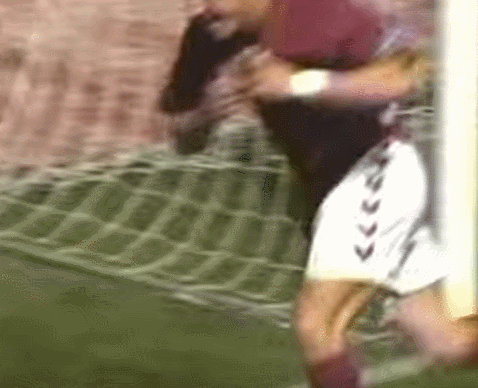
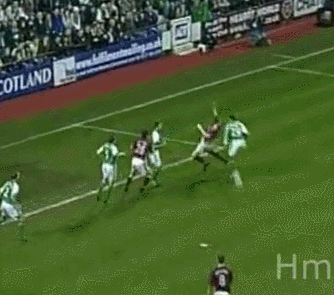
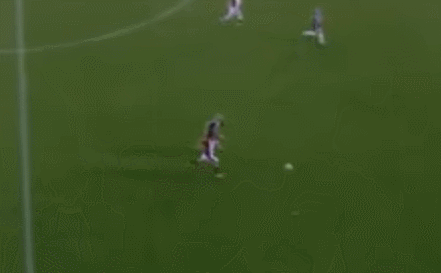
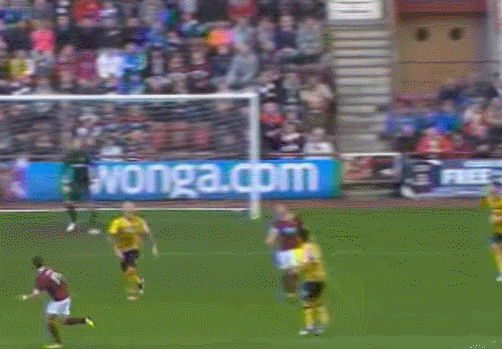
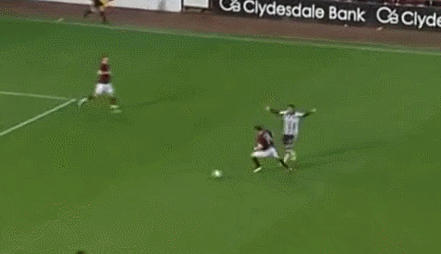
Malcolm Mcgill - August 18, 2016 at 6:44 am
Great article , summed up exactly how revered he is to the Hearts support . Will always be regarded as a hero in our eyes
Heather Anderson - August 19, 2016 at 12:46 pm
Brought tears to my eyes reading this.
Another Robbo.Another legend.
He will never be forgotten in gorgie….ever!
Subscribe to Podcast